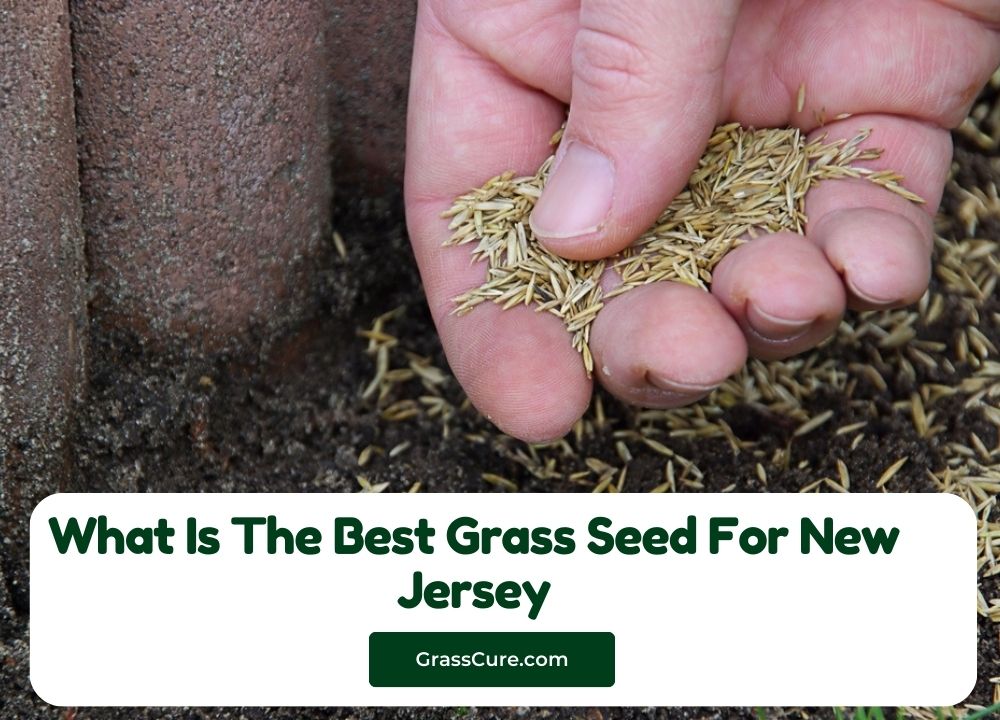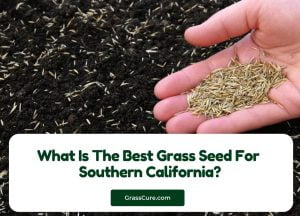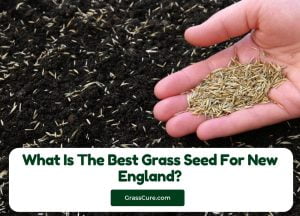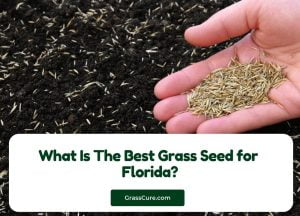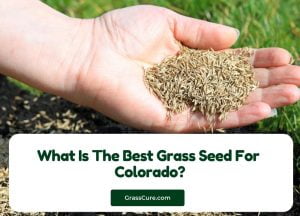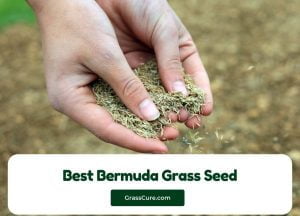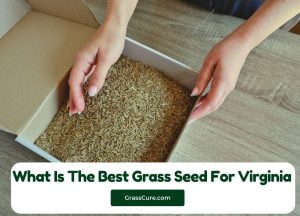New Jersey, the Garden State, boasts a diverse and picturesque landscape that has long captivated the hearts of residents and visitors alike. Whether you’re a proud homeowner looking to enhance your property’s curb appeal or a dedicated gardener striving for the perfect lawn, selecting the right grass seed is the cornerstone of your landscaping journey. But with a multitude of options available, how do you find the best grass seed for New Jersey’s unique climate and soil conditions?
From the rolling hills of the northern counties to the sandy shores of the Atlantic coast, we’ll delve into the key considerations that will help you make an informed decision. Let’s get started on your quest to find the best grass seed for New Jersey!
Hardness zone
You also need to know the hardiness zones in your area. This measurement shows the lowest extreme temperature in your room. Some herbs do not survive when the temperature drops below freezing.
The hardness of New Jersey ranges from 6a to 7b. This means that the minimum temperature range is between -10 and 10 degrees Fahrenheit.
As you can see, the range is relatively large. In general, the northern and inland parts of New Jersey are divided into regions 6a or 6b.
The southern and coastal zones are located in transition zones and belong to zones 7a and 7b. You can use the USDA Plant Resistance Zones tool to refine your postcode situation further.
Fresh and warm seasonal grass
The grass is divided into large fresh-season grass and warm-season grass. From experience, the fresh herb of the season has worked best in the northern # 7 region.
As the name suggests, these herbs can withstand the shallow temperatures of these areas. They include several fine-grained varieties such as Kentucky bluegrass, perennial ryegrass, and curved grass.
Warm-season grass grows further south. Unlike fresh herbs, these varieties sleep in the winter and turn brown instead of staying green. Their texture is also rough. Similarly, there are many varieties, including tropical plants such as Bermudagrass and St. Augustine clapboard. You may have understood why you need to know the resistance zone in your area.
Fresh seasonal herbs can be grown directly from seeds. Or, if you want to build the lawn as soon as possible, you can spread the grass from these herbs.
Warm-season grass, on the other hand, is better suited to be used as a lawn or stalk rather than growing from seeds. Cold-season herbs are often mixed, while warm-season herbs are often one type.
The best grass in New Jersey
Many of the states are located in Hard Zone 7, so fresh grass is a good choice. Frigid temperatures do not pose the same threat to these species as grass in the warmer months. If you don’t know what to choose, they offer you a safe choice.
However, if you live in District 6, you have some flexibility. The herbs of the warm season can withstand these hot conditions.
If you live in these transition areas, you should use the “Disaster Mitigation Zone” zip code calculator to determine if these options are available. Expanding your co-op can provide suggestions for the right grass species in your area.
Whether you’re starting from scratch or repairing an existing lawn, this informative video from Wyoming University Extension College walks you through the process of growing the grass.
Kentucky Blue Grass
Kentucky bluegrass (Poa pratensis) is reminiscent of a thoroughbred mare and its source playing in the grass, but it is also the grass species recommended for lawns in New Jersey. This name is incorrect because it is not unique to Kentucky or North America, but parts of Europe and Asia.
There are blue glass seeds on every 1,000 square feet of lawn. Sowing to the top of the stairs can build the yard faster. The best time to plant is spring or autumn, but you can plant all year round.
Check Best Kentucky Blue Grass Seed
Perennial ryegrass
Another grass seed is the Perennial ryegrass, which is bright green and germinates faster. Sprinkle 3-5 pounds of perennial ryegrass.
Covers 1,000 square feet. Under adequate rain or regular spraying, seeds should germinate in less than two weeks and grow less than one week under ideal conditions.
This herb does not work well in the dry state, so you need enough water to grow. Besides, it supports heavy traffic and usage.
Check Best Perennial ryegrass Seed
Fine Fescues
The soil of southern New Jersey is different from that of its northern neighbor. In Dayang County, county expansion agents recommend sunny holidays.
The three recommended types that can be mixed and used are “strong odor,” “chew odor,” and “creeping red odor.” Hardfests adapts well to the dry and sandy soils common in the area but hardly requires fertilizers and maintains an excellent green color.
Fine fescues produce the most attractive lawn of the three types, while red fescues are the best adaptation for shaded areas. Besides, all three require little maintenance.
FAQs:
1. What are the main factors to consider when choosing grass seed for New Jersey?
The primary factors to consider include your region within New Jersey, soil type, climate, intended use (e.g., ornamental or high-traffic areas), and the amount of sunlight your lawn receives.
2. What grass species are suitable for New Jersey lawns?
Cool-season grasses such as Kentucky bluegrass, fine fescue, and perennial ryegrass are popular choices in New Jersey. Each of these species has different advantages and is suited to varying conditions.
3. Can I mix different types of grass seed in my lawn?
Yes, you can mix grass seed types to create a more resilient and attractive lawn. For example, combining Kentucky bluegrass and perennial ryegrass can provide both durability and visual appeal.
4. What is the best time to sow grass seed in New Jersey?
The best time for seeding your lawn in New Jersey is during the fall, between late August and early October, when temperatures are cooler, and there’s sufficient moisture. Spring is also an option, but fall is generally recommended.
5. How can I determine my soil type and its pH level?
You can get your soil tested through your local agricultural extension office or a soil testing lab. They can provide you with information about your soil type and its pH level, which is crucial for selecting the right grass seed.
6. Is it important to choose grass seed specifically labeled for New Jersey?
While grass seed labeled for your region may have a mix tailored to local conditions, it’s not strictly necessary. What’s more important is to select grass species that thrive in the Northeastern climate and to consider factors like soil type and sunlight.
7. What are the advantages of using native grasses in my New Jersey lawn?
Native grasses are well-suited to the local environment, making them more drought-tolerant and requiring less maintenance. They also support local wildlife and ecosystems.
8. How can I maintain a healthy lawn after sowing grass seed?
Regular maintenance is essential. This includes proper watering, fertilization, mowing at the correct height, and controlling weeds and pests. Adequate care will help your lawn flourish.
9. Can I overseed my existing lawn with new grass seed?
Yes, overseeding can help rejuvenate your existing lawn by filling in bare spots and improving its overall health. Just make sure to follow the proper overseeding guidelines for your grass type.
10. Are there any drought-resistant grass options for New Jersey lawns?
Yes, fine fescue grasses, such as creeping red fescue and chewings fescue, are known for their drought tolerance and can be a good choice for areas with less water availability.
In conclusion
New Jersey is the Garden State. The nickname “Lonely Country” is perfect because the suburbs are vast.
Although this is a small state, due to differences in soil and topography, the grass and topography that are best for one area of New Jersey may not be suitable for another state.

